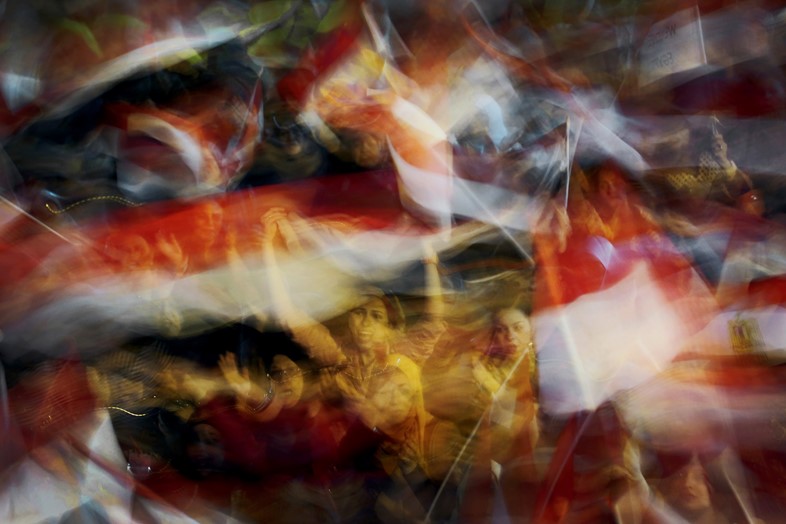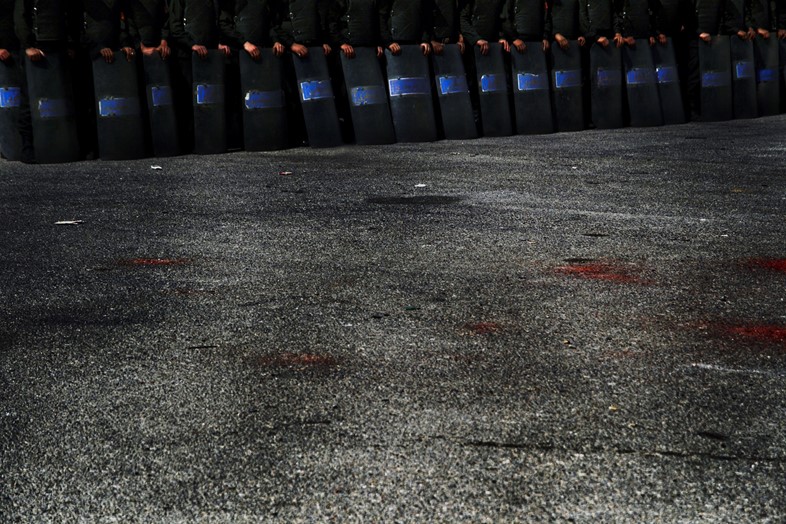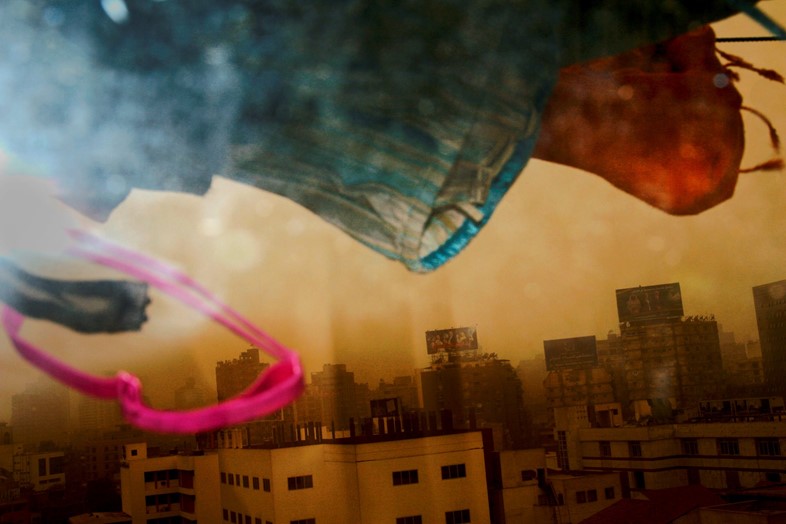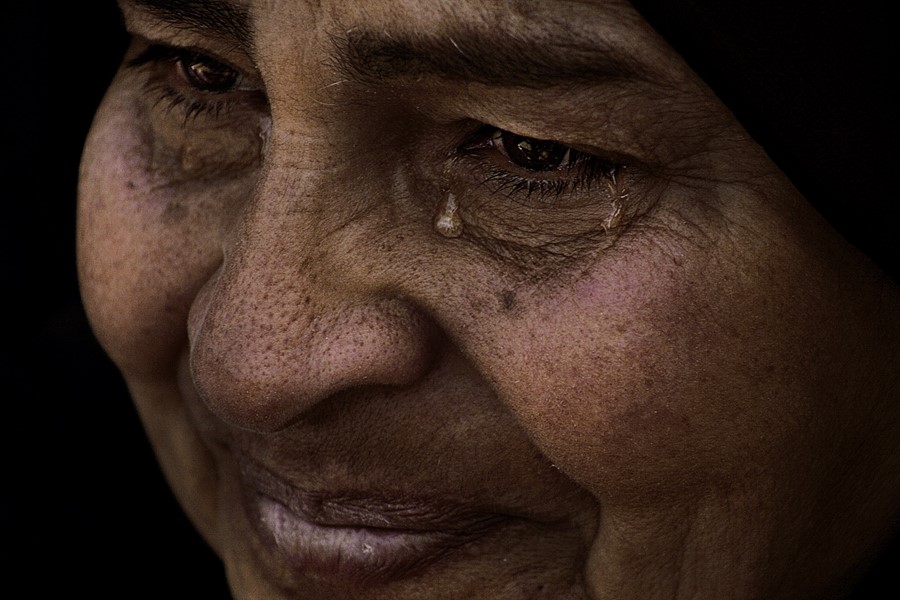Deutsche Börse Prize-nominated photographer Laura El-Tantawy merges the personal and the political in a photobook capturing a nation and its people in flux
"I don’t believe in neutrality in photography," states Egyptian photographer Laura El-Tantawy. "For me, being a part of what’s happening is very important." The happening she is referring to is the Egyptian Revolution of 2011, which forms the focus of her first photobook, In The Shadow Of The Pyramids – a tome that has consequently earned her a nomination for the prestigious Deutsche Börse Prize. Tantawy is one of four nominated image-makers flying the flag for a new kind of visual storytelling, weaving parallel narratives of selfhood and nation. Much like Tantawy’s own state of multiple belonging – she was born in England, and raised between Egypt, Saudi Arabia and the US – her photobook is her impression of the events before, during and after the events in Cairo’s Tahrir Square, but they are also an eye turned inwards. They seek identity through family histories and personal experiences – and in doing so, capture a nation grappling to find its own.
Awaiting announcement of the Prize’s winner on June 2, Tantawy reflects on the evolution of the project, the vulnerability and rewards of self-exposure, and walking the line between protestor and photographer.

On the photographer as a political participant…
"I take images spontaneously, reacting to what is happening around me. Whether it’s the fear, joy or sadness of the moment, a lot of it is about projecting my own feelings, as well as taking in the feelings that I am witnessing: a mutual process. Alternating between the roles of protestor and photographer was an inner conflict for me in many ways, but I felt like I had something to say about the images I was capturing. The idea of the neutrally observing photographer is something I don’t really believe in. When I turn my camera one way and I see something I consciously choose to either capture or not, I am making a decision according to my own interpretation of a situation; a political statement in itself. I always say that the book is about the revolution, and about Egypt, but it isn’t. It is about the revolution and Egypt from my perspective."
On how In The Shadow Of The Pyramids took form…
"I think it was quite serendipitous: when I visited Egypt in 2005 in search of my own search of identity, the country was also seeking it. I didn’t have any expectations beyond personal exploration. I was using the camera and photography as an excuse to go out into the streets and engage with people; to investigate how the country was evolving and where I fit in. So, at first, it seemed to take the shape of a photo-book about daily life in Egypt, through street photography. But as the project grew, I started to photograph my own grandfather too. My own reflections, as captions, found their way in. So a tense relationship between the collective and the personal grew within the work."

On the experience of photographing the events in Tahrir Square…
"The photos I took in Tahrir Square were my first works that resonated with people to such a degree. There was no attachment to the issues in my approach to the events at Tahrir Square; as I examined what the language of my photography was, I tended to favour images strong in storytelling. Of course, Tahrir was where I felt that very strongly. I come from a family with a strong sense of politics; politics is always a part of the discussion. I myself have a strong interest in global issues, too. So Tahrir felt like a culmination of all that - everything was coming together and I really felt like we were witnessing history. I do wonder, however, if the images I choose can ever really reflect the magnitude of what was happening in that square. I felt that question more keenly than any other subject matter I had worked on until that point in my career."
On the rewards of vulnerability…
"The text in the book was always going to be part of the project, but the question for me was how much of the personal I was going to reveal. Writing as I did the text of the book from 2005 to 2014, eventually I did lay bare my own inner thoughts, fragilities and vulnerabilities. In the end I decided that if I was committing to it, I had to get over the fear of self-exposure. Including childhood images brings even more layers of the personal to what you choose to put out there, but that’s what makes it important: that sense of honesty. In ten or 15 years I will have an honest impression of the unfolding of these events – at least through my eyes."

On the most challenging aspects of the project…
"The most difficult aspect was trying to express something, through photography, about the people and things you knew intimately - like your family or your home country. When I was out there photographing, I could understand the protestors behind me. They were asking, ‘who is she?’ or ‘why is she taking photographs - where is she from?’ All of these reactions seeped into my subconscious while photographing. It required a constant reading of the subtleties of people’s body language; when they recoil, for instance, rejecting my camera, I must gauge my actions well.
It was also a challenge to capture a nation that was changing so rapidly. From 2005 to 2014, Egypt was like a rollercoaster: the protests, the demands and the protestors themselves were all constantly in flux. Trying to keep up with what was happening and constantly having to remind myself why I started this work and what I was trying to say was hard, but crucial."
On her influences and inspirations…
"An issue or a personality can really inspire me and drive me to explore its context – it really can be that simple. The wider arts also inspire me greatly; photography is an important and creative medium to engage with, but inspiration is everywhere. Where the world may be many years from now sparks my interest, and how I can contribute to it with my voice and my photography informs my sources of inspiration."

On her Deutsche Börse Prize nomination, and forthcoming projects…
"I am grateful to be nominated, but particularly glad for the work – it is an important time to have this subject out there. It is a contribution to the conversation that should keep happening on an international scale, so people can remember the revolution and its ongoing process. I am very pro-January 25th and I feel the revolution is still very much ongoing. To label it ‘failed’ or ‘over’ does not reflect the reality of the situation for many Egyptians today.
"I am working on another book with a new body of work that picks up where Pyramids left off, narrowing in on the idea of home. Realising that Egypt is home, but not a home I necessarily have to physically remain in for it to be my home, forms my conceptual framework. How do large ideas like home and belonging work, and where do I belong? I started photographing for it in 2014 - it will once again include both text and images, and it is currently ongoing."
Deutsche Börse Photography Foundation Prize 2016 is on display at The Photographers’ Gallery until July 3, 2016.
